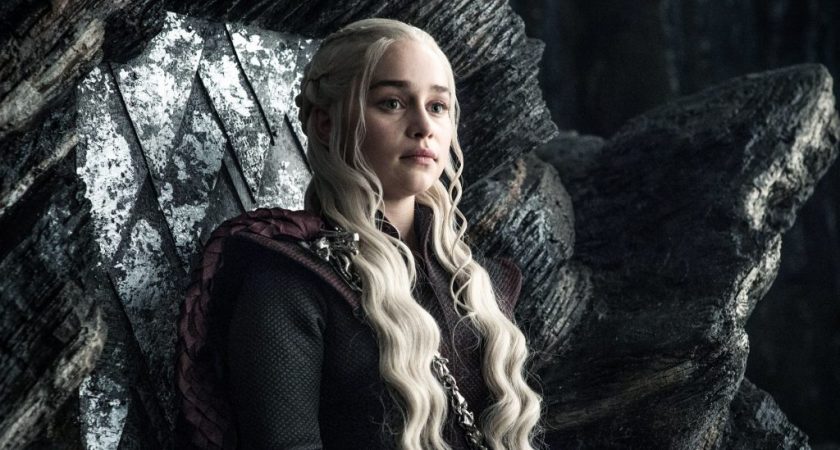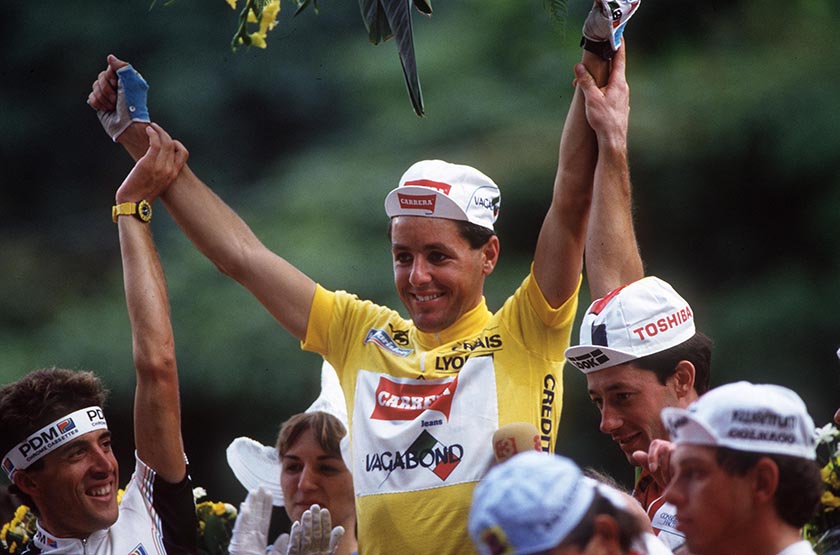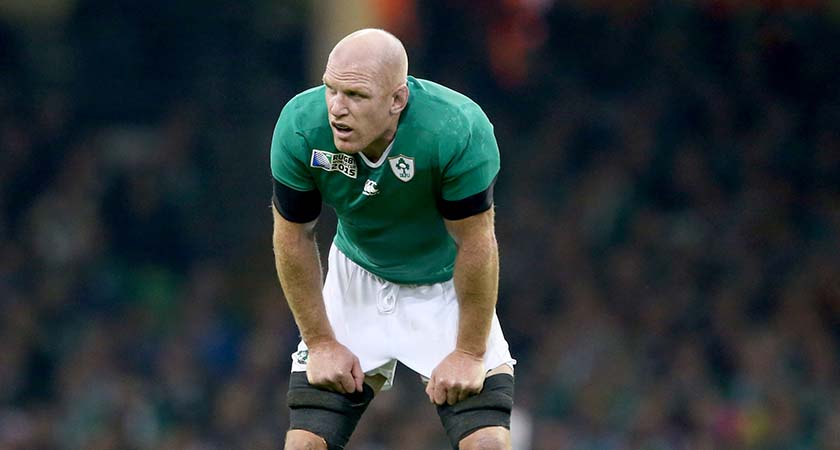WE look at 11 times throughout history when the Irish proved victorious over the old foes, including one time when Ireland’s rugby team trounced England in Dublin, but the English gained themselves a standing ovation at Lansdowne Road.
1. When John Treacy beat Steve Ovett with inches to go
Newly-crowned Olympic champion Steve Ovett was running in a 5,000 metres race in London in front of his adoring home crowd and looked totally in control.
At the race entered its final stages Ovett did his usual triumphant, arrogant wave to the crowd.
But Irishman John Treacy, a cross-country and marathon specialist from Co. Waterford, shadowed him all the way, catching the Olympic champion on the line.
The crowd, even though they had been behind Ovett, enjoyed this turn of events enormously. Steve Ovett less so — there was no customary handshake at the end.
2. When Iris Murdoch won the Booker Prize
Born in Dublin, Iris’s father had Co. Down roots, while her mother was from Dublin. Iris subsequently became a well-respected figure in British literature, although not America — she was refused a visa because of her sympathies with communism.
She once said: "I think being a woman is like being Irish... Everyone says you're important and nice, but you take second place all the time."
Iris Murdoch had been short-listed three times before winning the prize in 1978 with The Sea The Sea.
Kingsley Amis had been hotly tipped to take the award, but her story of the strange obsessions that haunt a playwright as he begins to write his memoirs gained her the prize.
3. The phonetic alphabet — the Irish word gets the nod
The NATO phonetic alphabet was devised in 1956 in an attempt to internationalise and standarise the Allied Armed Forces alphabet.
The list that emerged ran from Alpha to Zulu, and also included ‘Whiskey’ for W.
The British complained that ‘whiskey’ was spelt the Irish way (Ireland has never been part of NATO), and tried to get the Scottish form ‘whisky’ inserted instead.
But the use of ‘whiskey’ soon became almost universal, and the Irish input into the alphabet remains intact.
We never did manage to transform Lima into Limavady, or Foxtrot into Flatley, or indeed the song ‘P Stands For Paddy, I Suppose’, but at least we have our whiskey.
 Dana celebrates with fans after winning the Eurovision Song contest in 1970 in Amsterdam. (Photo by Keystone/Getty Images)
Dana celebrates with fans after winning the Eurovision Song contest in 1970 in Amsterdam. (Photo by Keystone/Getty Images)4. When Ireland first became a Eurovision superpower
Dana was our first Eurovision winner way back in 1970, and it set the Derry woman on the road to a showbiz and political career, with spells as a chat show host, an MEP and a fair tilt at becoming Ireland’s President.
But in 1970, while still a schoolgirl, she sang All Kinds of Everything at the Eurovision and pipped the British entry Knock Knock Who’s There? sung by Mary Hopkin, into second place.
Despite Dana’s early success, it was to be another 17 years before Ireland segued into its Eurovision glory years.
From 1987 Ireland scored five winners in the next nine years.
5. The Tour de France finally falls to an Irishman
To win the Tour de France you have to ride some 3,500 km, cycle up seven mountains passes which top 2000m, and do it all faster than anybody else.
Until the 1980s the race was dominated by France, the Benelux countries, Italy and Spain.
Elsewhere the Tour had all the interest of a burst water mains in Ballyjamesduff.
Then in 1987 a Dublin milkman’s son arrived.
Stephen Roche saw off challenges from the rest of Europe to win what many regard as one of sport’s toughest challenges.
6. The Battle of Yellow Ford
No nothing to do with Ford cars — not a mention of a Ford Cortina or even a Ford Capri.
This was a battle fought in 1598 in which the home side, the Irish, scored an all too rare win against the invaders, the English.
The Crown forces were marching from Armagh town to re-supply a besieged fort on the Blackwater when they fell into an ambush in Co. Monaghan and were routed with heavy losses.
The leader of the Irish forces, Hugh O’Neill, had inflicted the worst defeat ever suffered by an English army at Irish hands on Irish soil.
7. Ireland leads the way by not leading the way
Ireland has invaded no other country militarily. This compares very well with England/Britain’s record: according to recent research there are only 22 countries worldwide that England/Britain hasn’t invaded.
The only other nation that has achieved anything approaching the British total is France – which incidentally also holds the unfortunate record of having endured the most British invasions.
The only rivals to Ireland’s record of non-aggression are Liechtenstein and Monaco. The Liechtenstein army had a successful outing in World War I.
Eighty men were sent to guard a little used Italian mountain pass and saw almost no action.
On their march home, they befriended an Austrian who they took back to Vaduz with them, thus arriving home in Liechtenstein a stronger force than when they had left.
Monaco can also hold its heard up high in the peace stakes — their national orchestra is twice as large as their standing army.
8. England suffer their very first international defeat at soccer
England more or less invented Association Football, and so, predictably, for the first few decades they were the world’s leading footballing nation.
But in 1949 they suffered their first ever defeat on home soil to a foreign team. At Goodison Park in Liverpool, they lost 0-2 to the Republic of Ireland.
The English team fielded a strong side that included Billy Wright, Wilf Mannion and Tom Finney. Ireland’s team included just seven English First Division players, plus two English Second Division players.
The remaining two Irish players were League of Ireland journeymen. But they played their hearts out, and England were defeated.
Sadly, Ireland has slipped badly in the FIFA rankings since those halcyon days — they’re no. 31, a position they share with Scotland.
Which goes to show that if you work hard and have belief in the team, eventually you'll come across a team that's as bad as you are.
9. Paul O’Connell — a world-class performer in more than one discipline
When he stopped playing, he was Ireland's third most-capped player and the eighteenth most-capped international player in rugby union history.
But in another contest Paul McConnell bested an English team which had former English rugby international Matt Dawson as its captain.
The contest was the BBC’s Question of Sport, and O’Connell is rightly adjudged to have come up with the best answer ever on the programme.
On the Limerick man’s side was jockey AP McCoy, who set up O’Connell’s glorious move by answering correctly that Goran Ivanišević is Croatian.
This left on the board 23 blank spaces which represented the name of something to do with sport. The only letters available were the G and I of Goran Ivaniševic’s name.
A series of clues were to be given to the team, but before any of these could be distributed, Paul O’Connell quietly said: “Borussia Mönchengladbach, no?”
He had to repeat it, “Borussia Mönchengladbach, no?” And it was Borussia Mönchengladbach, yes indeed. Cue a standing ovation from players and audience.
It was, as Matt Dawson said, world-class.
10. When the English were swamped by Irishness
In the 12th century the peace of Ireland was shattered by the arrival of the Anglo Normans. But the invaders gradually settled in to their new home.
So successful were the native Irish in seducing the newcomers into Irish ways and society that in 1366 the English Parliament passed the Statutes of Kilkenny to prevent the colonisers becoming "more Irish than the Irish themselves."
The statutes forbade the intermarriage between the native Irish and the native English, and, amongst several other strictures, banned the Irish pastimes of "horling", as well as Irish music.
Statute XV forbade Irish minstrels or storytellers from coming to English areas.
Today Kilkenny has all but forgotten its statutes. Internationally it is famous for the monumentally successful Kilkenny Cats Laughter Festival.
To paraphrase Bob Monkhouse: when someone first suggested a comedy festival in Kilkenny everybody laughed.
Well, they're not laughing now. (Well, actually, they are.)
 Rugby matches between Ireland and England usually resemble battle scenes from something like Game of Thrones.
Rugby matches between Ireland and England usually resemble battle scenes from something like Game of Thrones.11. Ireland beat England at rugby, but the English team get a Lansdowne ovation
Rugby matches between Ireland and England usually resemble battle scenes from something like Game of Thrones or Lord of the Rings.
You expect someone to visit the changing rooms at half time, ringing a bell and crying, “Bring out your dead. Bring out your dead.”
But in early 1972, a confrontation occurred that had the Lansdowne crowd applauding the English team at length — merely because they had turned up.
The Troubles were at their height and a bleak start to the New Year had seen 18 people already dead in the cycle of violence in the North.
The British Embassy in Dublin lay in ruins after having been set alight 12 months previously.
Scotland and Wales had already called off visits to Dublin, and the England rugby team was expected to do the same. But they didn’t — the English lads made the journey to Lansdowne Road.
To tumultuous applause they ran out onto the pitch on match day. The understated captain, the Yorkshire farmer John Pullin, later commented: "We did no more than accept a kind invitation."
In the event, Ireland beat England 18-9. At the post-match dinner Pullin rose to his feet and said: "We may not be much good but at least we turned up."
To dust down that very useful cliché, it really was a victory for sport.



